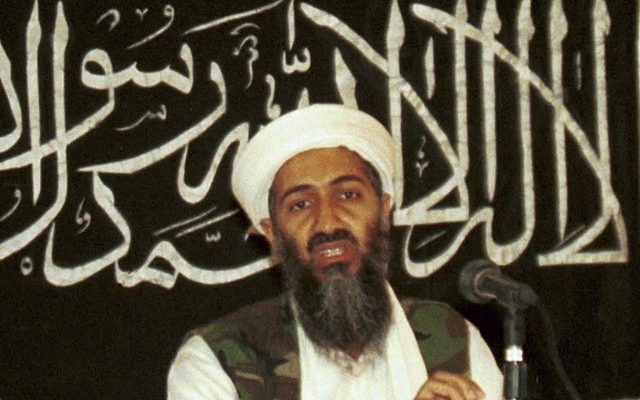Documents published by the CIA reveal the close collaboration between Iran and al-Qaida in their mutual war against the US.
The CIA’s release of documents seized during the 2011 raid that killed al-Qaida leader Osama bin Laden has again raised questions about Iran’s support of the terror network leading up to the September 11 terror attacks.
US intelligence officials and prosecutors have long said Iran formed loose ties to the terror organization from 1991 on, something noted in a 19-page report in Arabic that was included in the release of some 47,000 other documents by the CIA.
For its part, Iran has long denied any involvement with al-Qaida. However, the report included in the CIA document dump shows how bin Laden, a Sunni terrorist from Iran’s archrival Saudi Arabia, could look across the Muslim world’s religious divide to partner with the Mideast’s Shiite power to target his ultimate enemy, the United States.
“Anyone who wants to strike America, Iran is ready to support him and help him with their frank and clear rhetoric,” the report reads.
The Associated Press examined a copy of the report released by the Long War Journal, a publication backed by the Washington-based Foundation for Defense of Democracies, a think tank fiercely critical of Iran and skeptical of its nuclear deal with world powers. The CIA gave the Long War Journal early access to the material.
Iran Offered al-Qaida ‘Everything They Need’
The unsigned 19-page report is dated in the Islamic calendar year 1428 — 2007 — and offers what appears to be a history of al-Qaida’s relationship with Iran. It says Iran offered al-Qaida terrorists “money and arms and everything they need, and offered them training in Hezbollah camps in Lebanon, in return for striking American interests in Saudi Arabia.”
This coincides with an account offered by the US government’s 9/11 Commission, which said Iranian officials met with al-Qaida leaders in Sudan in either 1991 or early 1992. The commission said al-Qaida terrorists later received training in Lebanon from the Shiite Hezbollah terror group, which Iran backs to this day.
US prosecutors also said al-Qaida had the backing of Iran and Hezbollah in their 1998 indictment of bin Laden following the al-Qaida truck bombings of the US Embassies in Kenya and Tanzania that killed 224 people, including 12 Americans.
Al-Qaida’s apparent siding with Iran may seem surprising today, given the mutual enmity Sunni terrorists like those of the Islamic State (ISIS) have for Shiites and vice versa.
But bin Laden had run out of options by 1991 — the one-time fighter against the Soviets in Afghanistan had fallen out with Saudi Arabia over his opposition to the kingdom hosting US troops during the Gulf War. Meanwhile, Iran had become increasingly nervous about America’s growing military expansion in the Mideast.
“The relationship between al-Qaida and Iran demonstrated that the Sunni-Shiite divisions did not necessarily pose an insurmountable barrier to cooperation in terrorist operations,” the 9/11 Commission report would later say.
Before the Sept. 11, 2001, attacks on New York’s World Trade Center and the Pentagon in Washington, Iran would allow al-Qaida terrorists to pass through its borders without receiving stamps in their passports or with visas gotten ahead of time at its consulate in Karachi, Pakistan, according to the 19-page report. That helped the organization’s Saudi members avoid suspicion. They also had contact with Iranian intelligence agents, according to the report.
This also matches with US knowledge. Eight of the 10 so-called “muscle” hijackers on Sept. 11 — those who kept passengers under control on the hijacked flights — passed through Iran before arriving in the United States, according to the 9/11 Commission.
However, the commission “found no evidence that Iran or Hezbollah was aware of the planning for what later became the 9/11 attack.”
Iran Denies Relationship
For its part, Iran has denied having any relationship with al-Qaida since the 1998 attacks on the embassies. Iran quietly offered the US assistance after the Sept. 11 attacks, though relations would sour even more following President George W. Bush naming it to his “axis of evil” in 2002.
On Thursday, Iran’s semi-official Fars news agency, which is close to the paramilitary Revolutionary Guard (IRGC), dismissed the CIA documents as “a project against Tehran.”
Iranian media on Thursday did not immediately report on the release of the 19-page report.
The 19-page report describes Iranians later putting al-Qaida leaders and members under house arrest sometime after the Sept. 11 attacks. It mentions the 2003 US-led invasion of Iraq, saying it put increasing pressure on Iran, especially with the rise of al-Qaida in Iraq.
“They decided to keep our brothers as a card,” the report said.
That would come true in in 2015 as Iran reportedly exchanged some al-Qaida leaders for one of its diplomats held in Yemen by the terror group’s local branch. While Yemen described it as a captive exchange, Tehran instead called it a “difficult and complicated” special operation to secure the Iranian diplomat’s freedom from the “hands of terrorists.”
“The repercussions … of the Sept. 11 attacks were undoubtedly very large and perhaps above (our) imagination,” the al-Qaida report said.
By: AP





